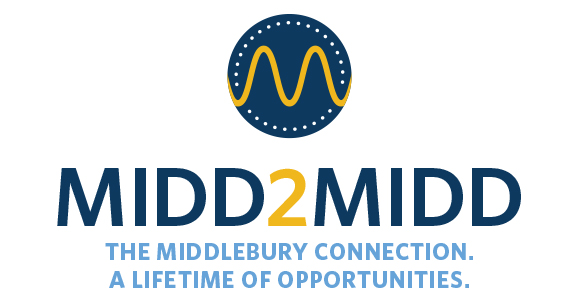
Graduation Year: 2007
Major: Political Science
You have a unique background: you hold a doctoral degree in Political Science and now you are a leader at Google’s data science division. Could you briefly introduce your career journey and your thoughts at each transitional point through that journey? I studied Political Science at Middlebury and then pursued a PhD degree in the same discipline at Penn State University. During my PhD program, I did a lot of statistics and machine learning work. At the time I graduated from Penn State, there weren’t a lot of people with machine learning backgrounds and the term “data science” was just starting. It was fairly straightforward for me to transition to a statistics-oriented job in the corporate sector. I initially worked at Allstate right after finishing my PhD, but fairly quickly left and joined a company called RPX founded by John Amster, a Middlebury alum. At RPX I primarily built software to do automated patent analyses, mostly using natural language processing methodologies. I did a few presentations for the patents team at Google, which was one of RPX’s clients. Google later reached out to me and invited me to join their team. That’s how I ended up working for Google up to today.
When you were pursuing a PhD in Political Science, did you anticipate yourself later working as a data scientist? What value do you think statistical skills can bring to students in Social Science and Humanity departments? Most people who pursue a PhD program in Political Science want to work in academia, but I was not one of them. I was primarily focused on building my technical skills as much as I could, which meant taking every course I could covering stats and machine learning and a bunch of courses outside of the political science department and doing summer programs as well. I encourage students to take advantage of the liberal arts education and at least get exposure to some technical coursework. Even students interested in other subjects like politics, music, art, or history benefit from knowing the basics of coding. In the workplace, if a sales or marketing person knows how algorithms work and can write some code, they can easily stand out from their peers.
If you were to hire a college graduate to your team, what qualities would you look for? I want to know that someone has a deep technical understanding of the concepts that we use. Many people have taken a linear regression course or an image classification course, but they still struggle to answer the fundamental questions about how these methods actually work. For example, when would you choose one algorithm over the other? What is the trade-off between using method A and method B? A lot of people can get models to run, that is the easy part. Being able to clearly articulate these things — mathematical underpinning, tradeoffs between different models, explaining nitty-gritty details in layman’s terms — are more important in my opinion than being able to get the models to run. In addition, I also look for the candidate’s work ethic. Different from some other interviewers, I put less weight on candidates’ level of skills at the time of the interview. Rather, I try to predict where their skills could be within 3-6 months. In reality, there are so many things to learn on the job; few college graduates are able to deliver extremely impactful work when they first start in their job. If someone demonstrates a deep level of intellectual curiosity and a strong work ethic, I am often willing to give this person a chance, even if this person has less experience than other candidates. Last but not least, I want to make sure this person is a good team player and would fit into Google’s collaborative culture.

This series is coordinated by Xiaoli Jin ’19. Look for more alumni profiles each week. You can connect with Xiaoli on LinkedIn.
If you are interested to interview alumni and contribute to this series, please contact Xiaoli Jin 2019′ on Midd2Midd.

In this time of social distancing, we are all looking for new ways to stay connected, and Midd2Midd is one of them! Midd2Midd connects Middlebury students, alumni, and parents, supporting mentoring, networking, and engagement within the Middlebury community around the world. Midd2Midd is your place to make things happen. Simply complete your profile, create a customized search, and begin to network!